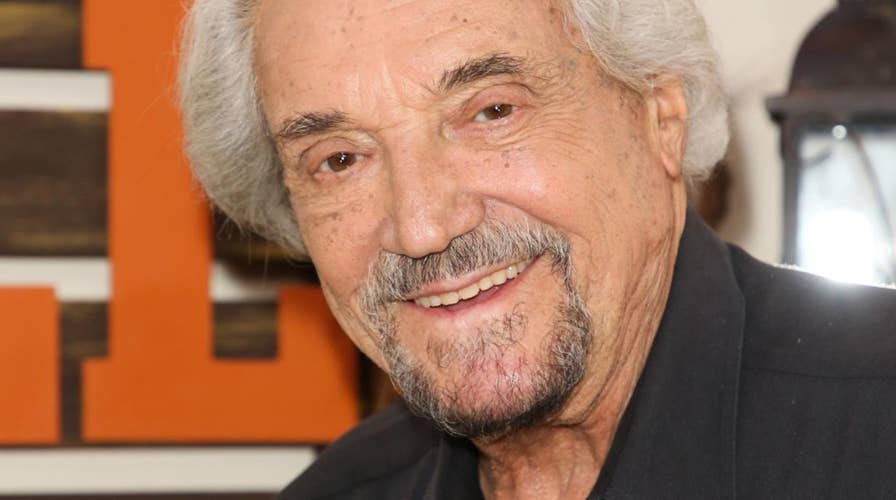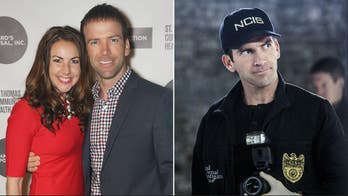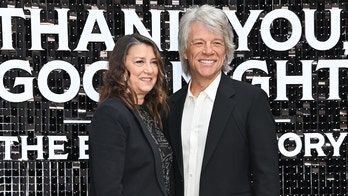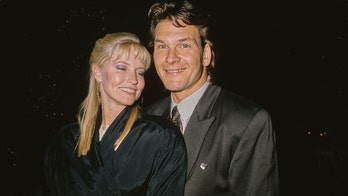Long gone are the days when Hal Linden was filing paperwork in a detective squad room.
These days, the 87-year-old star of ‘70s cop comedy “Barney Miller” is focusing on families with his latest film, “The Samuel Project,” which is already playing in selected theaters and has received a number of nominations and awards.
The movie tells the story of Eli (Ryan Ochoa), an outcast teen who connects with his isolated grandfather Samuel (Linden), a Holocaust survivor, as he decides to make him the subject of a school project. It’s a story Linden is passionate about sharing — one of many for the Hollywood star.
Fox News spoke with Linden about taking on “The Samuel Project,” why “Barney Miller” was initially a failure and the one life lesson the late Judy Holliday taught him.
Fox News: What inspired you to take on ‘The Samuel Project’?
Hal Linden: It’s very rarely that I turn down a role. Mainly because every role has a different challenge. Every role has work to be done… some are better than others, but every human being has all these aspects of their lives that have to be explored. And that’s really all I do. … We realized the picture wasn’t about Samuel. It was about a boy trying to fulfill dreams against all odds. And there’s nobody stopping him from doing it. He just has to do it. And there are no villains in the piece. Nobody is out to hurt anybody.
Fox News: How important is to share a story like this one with audiences?
Linden: Not even with audiences, but quite honestly, I look at it from Samuel’s point of view. It’s important to share his story with his grandson. … We have a habit of forgetting. It’s important to get that story out because there are people out there who would say it never happened. And we are losing survivors of that incident daily. We need to remember. And there is a lack of communication between the generations. I was sitting at a dinner table next to my granddaughter, who is texting on her telephone. So I took out my telephone and I texted her.
I said, 'The gentleman on your right is your grandfather. Why don’t you say hello?' But this isn’t new. It happens in every generation because the whole point of generational identification is to divide yourself from the past generation. That’s why you have different music, different styles of clothing, haircuts – just to divide yourself from the generation that came before you. But that presents a blockage in communication between the generations. And if this picture says anything, it says that art can be more eloquent than words.
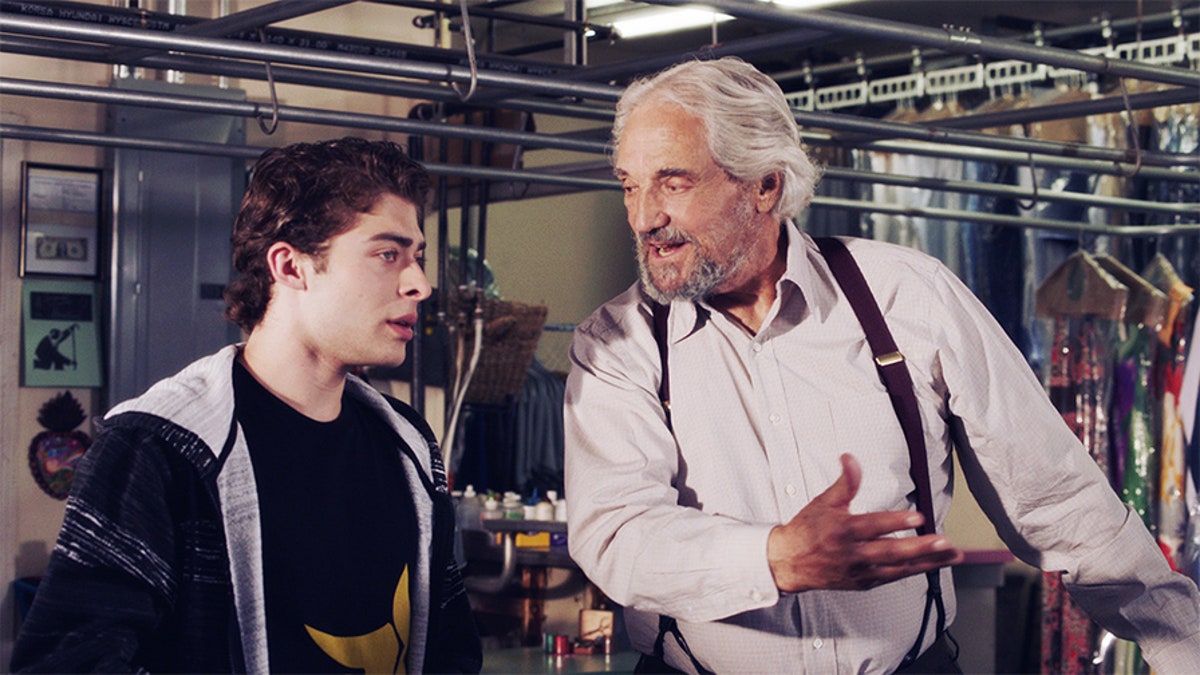
Hal Linden (right) with Ryan Ochoa in "The Samuel Project." (Courtesy of in8 Releasing)
Fox News: What’s keeping you motivated?
Linden: Oh, I love the work. It’s a great way to spend your life. Think about it, you get to be all kinds of people. You get to walk in a lot of different moccasins. You get to experience all kinds of attitudes. What a bore to just be one person your whole life! Look at all the people I’ve been *laughs*. That’s what I do. And that’s why I’ll keep doing it. It’s a great occupation when you think about it. Every day, every character is different. You get to learn about history, politics, human behavior, psychology. It’s a great occupation.
Fox News: Looking back, why do you think so many police officers resonated with ‘Barney Miller’?
Linden: … If you eventually ask detectives, and I did, how many times in their entire career they shot a gun in anger, not in target practice, but in the streets, the average answer was none. One guy said 'Yeah, I did it once, maybe twice in my whole career.' But most detectives have never shot a gun in anger. But when you watch all the police shows, that’s all they’re doing. They’re in alleys firing their weapons. Police work is mostly investigatory. It’s gathering information, putting information down on paper, it’s disseminating that information to the rest of the force.
And that’s grunt work. That’s sitting on a desk, talking on a telephone, interviewing somebody — that’s mostly what detectives do. And that’s all we did in Barney. I can understand that it would be hard to have a police action show with a guy writing a report. I suspect that’s why police officers identify with Barney Miller because that’s what they do. Grunt work — sitting at a desk, filling out a form, getting information, putting it down.

Hal Linden (center) starred as Barney Miller. (Getty)
Fox News: How was the pilot a failure?
Linden: The original was called 'The Life and Times of Barney Miller.' This came from an era when we had a lot of family comedies. So it was going to be a show about the family life and professional life of a police officer. Half of the show was shot at home. I had two kids, a wife. That was the pilot. And the pilot was only half successful. The successful part was the interesting stuff from the squad room. So the show was not a success. It was turned down totally. It was a different cast by the way. Different wife, two kids.
Me and Abe [Vigoda] were the only people who moved on in the next phase of the show. But it was not a success. You needed a producer like Danny Arnold. He somehow convinced the network to fund two more episodes. By the time he did that, a lot of the people who had done the original were no longer available, so it was a totally different cast. My original wife was Abby Dalton and then it was Barbara Barrie. And then it was just named 'Barney Miler.' It became about the police station. … And Barbara left the show voluntarily after two years because there was nothing for her to do.
Fox News: What are your thoughts on the state of sitcoms?
Linden: Sitcoms are hard to do. Some are very good. I don’t like the ones that hit you in the face. Quite honestly, I haven’t watched too many of them lately. I’m not going to tell you that they don’t make them like they used to. That’s what they said in my day. In a sense, they’re making it better. I think comedy is far more advanced than when I was doing 'Barney.'

Hal Linden today. (Courtesy of in8 Releasing)
Fox News: Is it true Judy Holliday gave you some lessons early on in your career?
Linden: She was teaching me by example. I watched her work on stage and learned a lot from it. That was my Broadway debut, so it was a long time ago. Judy was a big star when she was doing 'Bells Are Ringing.' She played half of that show with her back to the audience because she specifically would not draw attention to herself so that the audience could watch what they’re supposed to be watching. The first time we ever did 'Just in Time'… We danced across the stage. I took her in my arms and sang in her ear, basically. That was the staging of the song.
And as I started dancing across the stage, I felt her hand on my back twisting my body in this uncomfortable way. I couldn’t watch what she was doing. I was singing away. Then I realized she was twisting us so that I would be facing the audience and she would have her back to the audience. Because I was the one singing. She wanted the audience to look at me, not at her. … To get my moment done.
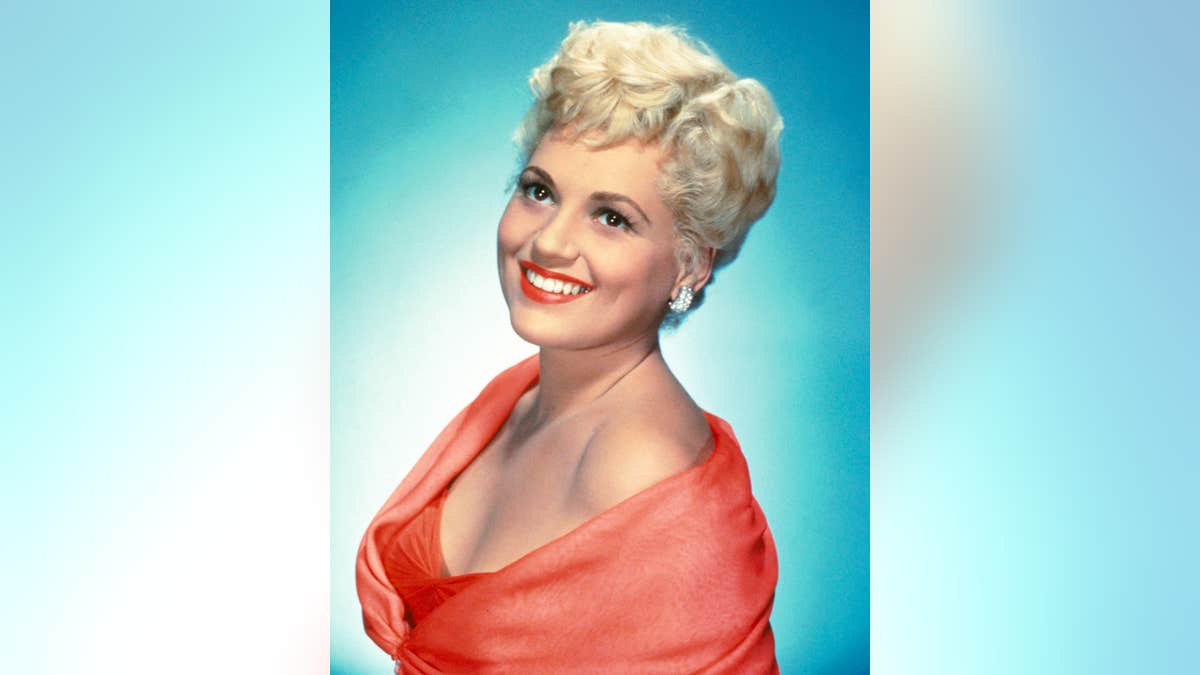
Judy Holliday (1921-1965) in a studio portrait, against a bluw background, circa 1950. (Silver Screen Collection/Getty Images)
